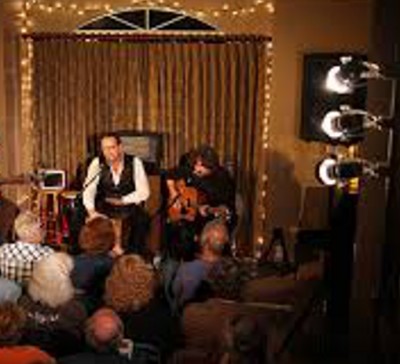UNITED STATES—The memoirist must always make a choice, to be didactic and distill lessons or to tell the story. Here I will pause to give writers a brief lesson. As I go back to my journal pages from this period there is mention of the Ayatollah’s demise and Tiananmen Square (placing it squarely in June 1989 when I first arrived back in L.A. from Mexico), then next thing you know we’re in a new decade, the 1990s.
I had a belief at the time that all my emotion and creative energy should be funneled into my screenplay. I didn’t need to be keeping notes in a diary. Then again, I could not have known a) the real story was what was going on around me at 1980 Estrella Avenue and b) I might one day be writing a memoir and have to riddle out from memory what happened in January 1990, the raw start of a raw new year. And what happened was this: I had finished my screenplay, “The Persecuted.”
I mailed a copy to my screenwriter friend to read. Not hearing from Larry simply added to my insecurities. Of course when I sent him the screenplay I had neglected to include my phone number, so it would be months before getting a critical reaction. Nevertheless, I felt free with the million-dollar project wrapped up and behind me. It was a relief. To be away from those pesky manual margin settings on my Olivetti, and endless ferreting out of plot and character; it had taken many more months than the three weeks I had allotted to it. I had done it for money, and that made it hateful in some way. And yet I had already put real sweat and toil into it that made it art.
But before that big screenplay money came in, I needed some action. Hence: the dramatic interview at La Opinion. I felt right on the cusp of getting a respectable job in sales and using my bilingual skills. This was something I might be able to ‘write home about’ and thus restore communication with my family.
Then, just I as suddenly as I was invited for the interview I was ejected for offending the stuffy yuppies interviewing me, the imaginary buyers for the imaginary bibles I was hawking (“Eternal life and salvation, you can’t beat that. And all for the low low price of nine dollars and 99 cents, but you better think fast, or I’ll be walking to the next house”).
Afterward, tears were streaking down my face near Washington Boulevard, a brilliantly sunny, smoggy specimen 80s day, though we were now in the 90s. I suddenly remembered a note read in that morning’s La Opinión about a bilingual theater group forming that very night at Macondo Cultural Center on 8th Street near Vermont. Named for García Marquez’ town in “One Hundred Years of Solitude.”
Maybe a dozen people gathered in that storefront that night, with its small, brightly painted plywood stage, its book and video store, its music selection of Trova Nueva. The place pulsed with workshops and performances and folding chairs to trip over and people with an itch to express and sometimes kvetch. Here I came in contact with a man of many cultural gifts, the gift of the poet, the actor and teacher. Rafael was from Peru, he got the group together. We went chair by chair and introduced ourselves and said where we were from. I produced smiles immediately, for I was the gringo. In fact it had been going to be a Spanish-language troupe the whole time: only my presence made it bilingual.
Anyhow, Rafael had laid a trap for us. At the end of the introductions he asked how many names of the people can you remember? Some remembered four or five. Rafael was impressed that I remembered all the names. I could do something right.
To be continued…
Humorist Grady Miller is author of the humor collection, “Late Bloomer,” available on Amazon. Grady can be reached at grady.miller@canyon-news.com.






